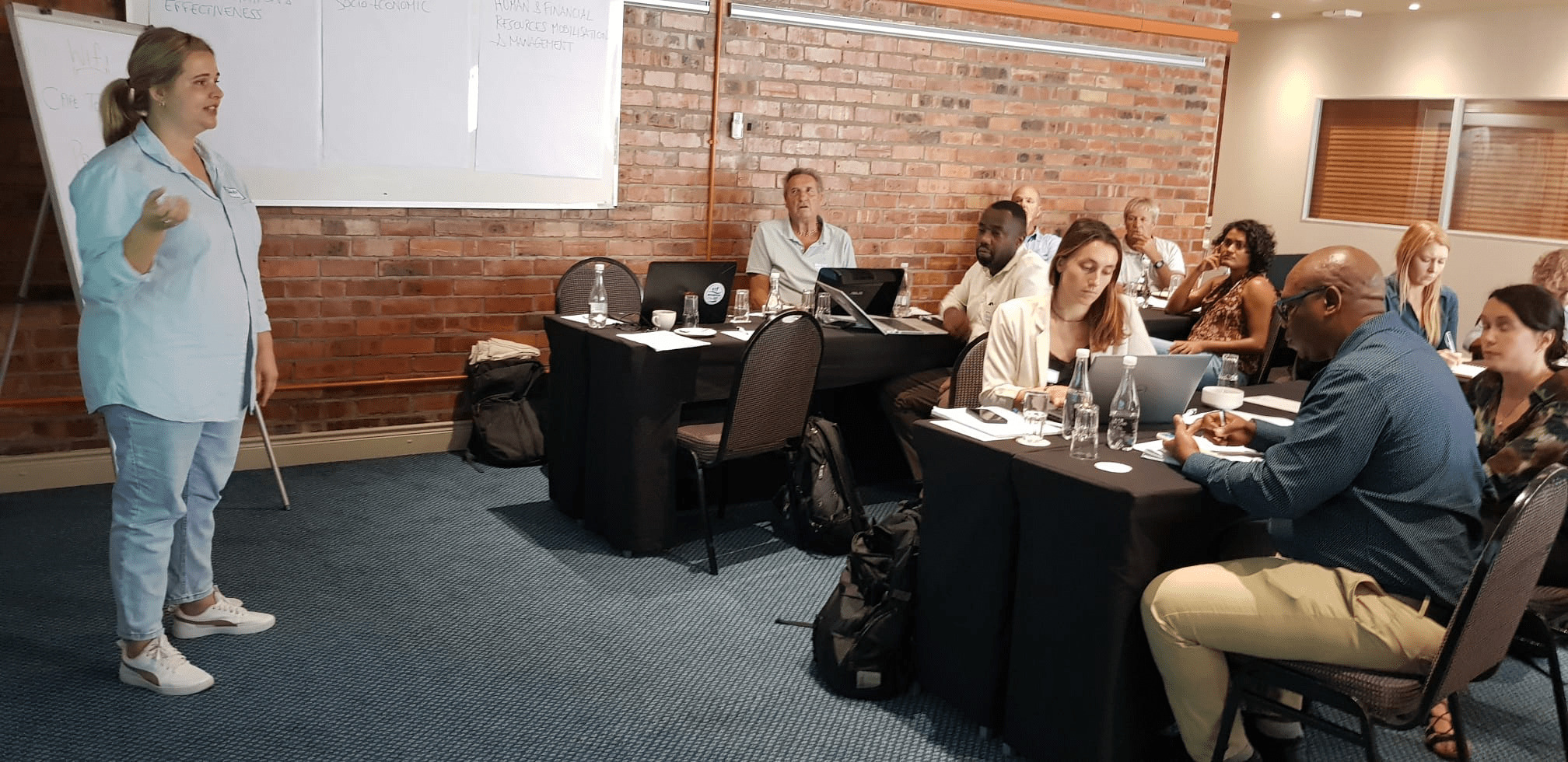Organising a workshop for the first time : What made it a success!
Standing in front of the audience, twenty-five faces turning towards me, I realised what it feels to be in the shoes of an event organiser. Twenty-five people expecting you to explain the reasons why they gathered in that room. Twenty-five people looking at you for instructions throughout the sessions, for information about the time and place for lunch. Twenty-five people waiting for your welcoming and inspiring words to unleash excitement, motivation, ambition... This is more of a rush than I expected!
I left home at four in the morning on 20th February with a heavy heart. After several weeks of frenetically coordinating logistics and agenda sessions, with nights of anxious and bad sleep, the day of departure just came too early. But this was it, dragging a suitcase in one hand and holding on my good fortune in the other, I took my flight to Cape Town.
“If you want the cooperation of humans around you, you must make them feel they are important - and you do that by being genuine and humble.” Nelson Mandela
The objective of the workshop was to establish a mentorship program for the Western Indian Ocean Marine Protected Areas Professionals Network (WIOMPAN), together with the newly-recognised mentors and key technical partners. We facilitated sessions to identify each mentor’s knowledge areas, expertise and skills, in order to create a register of competences, and to define the practical modalities of the program. Experiences and lessons learned from existing and past mentorship initiatives were shared and served as a reality-check for the co-development of this mentorship program. The essential criterium was to design it in a way that it was a realistic and feasible, agile and light-touch type of investment for the mentors. A site manager will have access to the database of mentors, with the possibility to select and contact the person with the set of skills that best match with the type of support needed. This means that the site management team may engage with several mentors to improve on different aspects of the Marine Protected or Conserved Area.
 Photo: Cecile Fatterbert
Photo: Cecile Fatterbert
The program offers a space for practitioners to interact with each other, and we hope that it will also foster in-depth mentor – mentee relationships, that has the power to improve individual professional development. As highlighted during the workshop, this type of mentoring can’t be forced or organised. It rather happens informally and organically, because it obeys to laws of human nature.
We achieved the objectives of the workshop, through engaging and fruitful discussions and exchanges. But the aspect I am proud of is the strong collaboration that resulted from a recent encounter with brilliant people, working with WIOMSA, SwAM, Foundations of Success and the Varuna project, in Dar es Salaam last November. It was then that I saw the potential to mobilise these partners for a joint mentorship program where their own initiatives will still be singled out, for pulling our strings together and contributing to a united effort, anchored in our common home in WIO, which is the WIOMPAN.
As the Malagasy maxim says “Izay misaraka fasika, fa izay mitambatra vato”, when we separate we are like sand, but when we come together, we are like stone.
It worked out so well! Prior and during the workshop, I felt we were a solid team, as if we were working in the same organisation. Mutual respect, honesty, trust and open communication were key ingredients to our relationships, that can be described with the comforting and appeasing word of friendship. With such partners and people, you do not see competition but complementarity, and each person brings forward their best qualities - one can hope to achieve tremendous, durable success with these kinds of relationships! As the Malagasy maxim says “Izay misaraka fasika, fa izay mitambatra vato”, when we separate we are like sand, but when we come together, we are like stone.
Hence, the WIOMPAN site managers will have the chance to request a mentor’s support for adopting an adaptive management approach with specific tools (called a Conservation Coach), for navigating the Green List process (called a Green List Mentor), for conducting an IMET assessment (called an IMET Coach) or any other specific need they may have (called a Varuna Mentor, a WIO-COMPAS assessor or any WIOMPAN Mentor of the pool).
Disclaimer
Opinions expressed in posts featured on any Crossroads or other blogs and in related comments are those of the authors and do not necessarily reflect the opinions of IUCN or a consensus of its Member organisations.
IUCN moderates comments and reserves the right to remove posts that are deemed inappropriate, commercial in nature or unrelated to blog posts.
